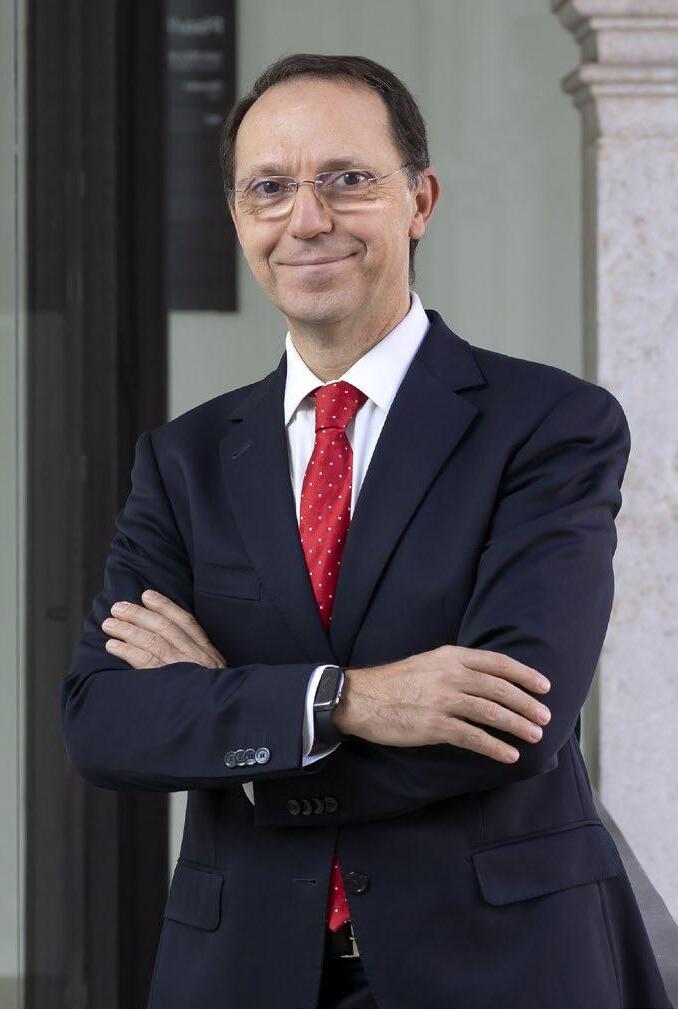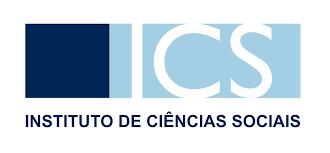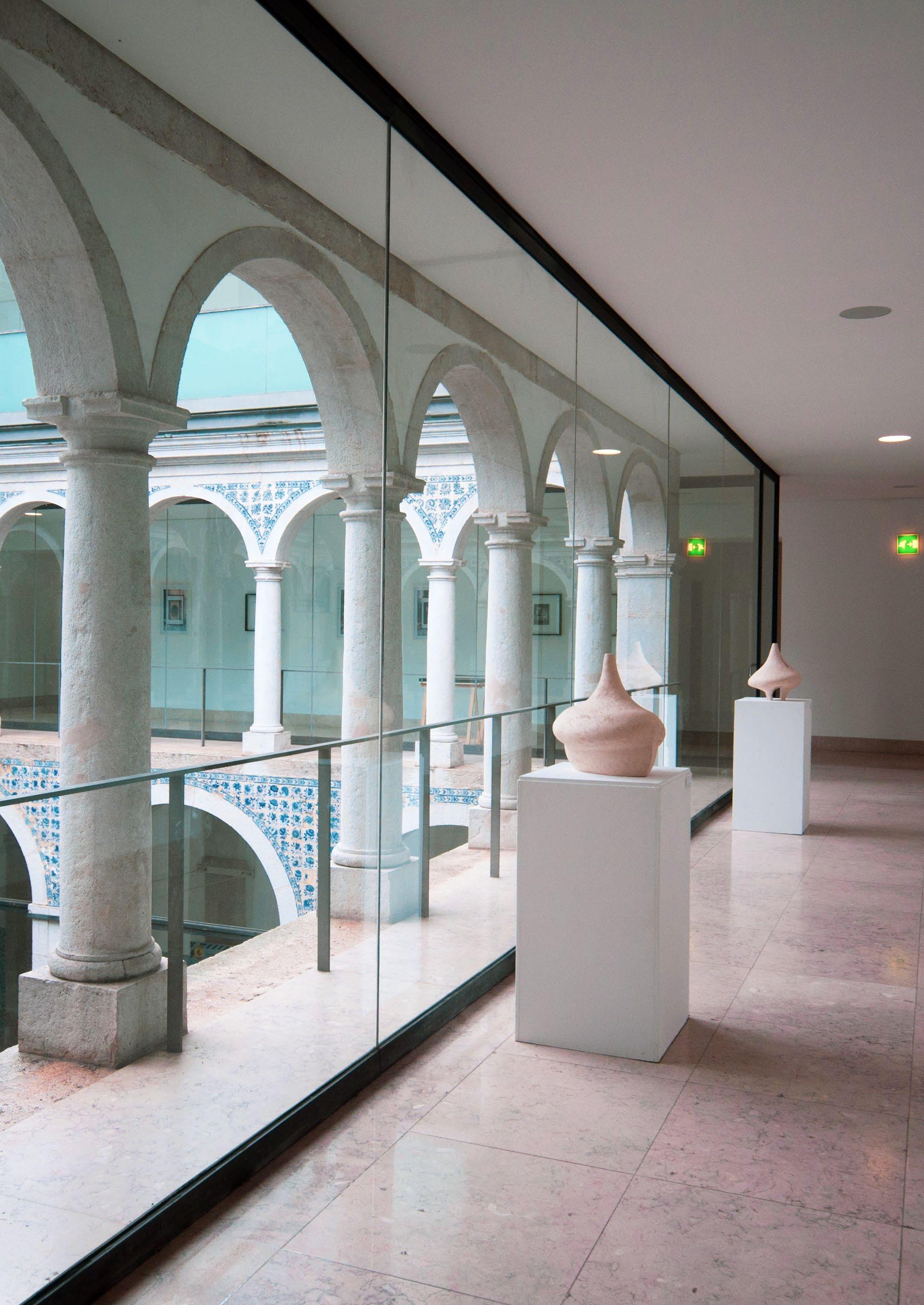Welcome to ISEG Lisbon
At ISEG you will find an environment that is supportive of research, with a friendly atmosphere of sharing and interaction between faculty, researchers and PhD students. We bring together all the necessary means and resources to carry out advanced research in the most cutting-edge research topics.
Furthermore, a comprehensive programme of seminars and conferences takes place throughout the year, which you can attend, selectively choosing according to your interests. We thank you for your interest in our PhD Programmes, which cover different areas of specialization, each targeting a special profile of student. Hopefully we will meet you soon here in Lisbon! But, first, let us highlight three good reasons to choose ISEG for your PhD:
João Duque Dean of ISEG Full Professor of Finance
01. An Experience at the Leading Edge of Knowledge
Unlike all other academic degrees, the main objective of a PhD is to produce new knowledge – in original research which is relevant to society and respected by the scientific community.
In our school you will find members of faculty who are producing worldclass research that is published in top international journals – our PhD students are also expected to present their work at reputed international conferences and publish in high quality scientific journals or in edited books. This is already happening, and you can be next!
02. Learning Advanced Skills
03. Excellent Faculty and Graduates
Whether from a more theoretical or from a more applied perspective, a PhD thesis should involve knowledge which is relevant to the economy and society as a whole. In any case, it must incorporate advanced research techniques and methodologies.
With several decades’ experience in educating PhD students, at ISEG we know how to identify and develop the critical skills required by these students: analytical skills, technical skills, confidence to be creative, and even soft skills associated with effective communication.
Many of our PhD alumni play important roles in academia and in the public and private sectors, as well as in the social economy area.
The scientific research carried out by our research units provides an essential support for our offer of PhD Programmes. Based on many consecutive years of experience, ISEG is the School of Economics and Management that produces the largest volume of scientific publication in refereed academic journals (WoS, SCOPUS) in its scientific areas in Portugal.
The “António Simões Lopes prize”, for the best PhD thesis in the field of Economics carried out in Portuguese universities, was first awarded to Sara Proença for her PhD thesis at ISEG in the field of energy. This prize is sponsored by the Order of Economists, in partnership with PwC. Again in 2020 it was awarded to a PhD thesis from our school (Jorge Faria Silva).
Why ISEG Lisbon
ISEG is the oldest School of Economics and Management in Portugal, with a tradition of over 100 years in educating the Portuguese business and technical elite. With an experienced and well-prepared faculty, ISEG is also recognised for the extraordinary spirit of mutual understanding that is cultivated between its students and faculty. With an ever-increasing focus on internationalisation, ISEG offers a number of programmes taught in English, including three Bachelors degrees and eleven Masters, which attract more international students each year.
ISEG offers ten PhD Programmes, six in key fields of study, and another four in partnership with other schools and universities. A PhD enables students to learn up to the limits of knowledge in an academic environment where research experiences are shared, and ideas and methods are discussed, and where you can always find someone who has common interests. This is what ISEG has to offer in its PhD Programmes. Find out about these topics – and much more - in this brochure, or at iseg.ulisboa.pt
10 reasons
01.
ISEG is accredited by AACSB, a distinction earned by only 5% of business schools in the world. ISEG’s international standards have recently been acknowledged by the reputed Global Financial Times Rankings with the Master in Finance in 2020 and 2021.
03.
As part of the Universidade de Lisboa, ISEG belongs to UNITE! – University Network for Innovation, Technology and Engineering – a network that aims to foster cooperation between higher education institutions in Europe.
05.
ISEG’s high quality research centres are engaged in a diverse array of international research projects.
08.
ISEG’ students and faculty win awards and recognition for best case studies, best dissertation and research output, and applied projects.
06.
ISEG has a large, diversified, global network of talented alumni.
09.
ISEG is committed to the United Nation’s Sustainable Development Goals (SDGs) for 2030.
02.
ISEG is a School of the Universidade de Lisboa, a leading university as recognized by the selective Shanghai ranking (ARWU).
04.
ISEG is located in downtown Lisbon, a vibrant, multi-cultural, cosmopolitan, and sunny European city.
07.
ISEG students are highly sought after by top employers in government, private industry, and higher education around the world.
10.
ISEG students benefit from a collegiate and open-minded atmosphere with many opportunities to interact with their peers and with faculty.
Taught in English
ISEG Scientific Committee
Francisco Louçã
Alexandre Abreu
Carlos Castel-Branco
PhD in Development Studies
Target
ICS Scientific Committee

Olivia Bina
Simone Tulumello
Roberto Falanga
IGOT Scientific Committee
Jorge Malheiros
Margarida Queirós
Mário Vale
Anyone interested in obtaining advanced academic training and doing research with a view to working in jobs related to international and national development in the public sector, the private sector, or the nonprofit sector. Out-going students can find employment in teaching and research posts, managerial and executive positions in international and national organisations, consultancy, training, research projects, journalism, planning, development projects, public policy planning and evaluation, and social projects and social policies. This programme is lectured in English, but offers tutorials in both Portuguese and English. The PhD thesis may be written in Portuguese or English.
Entry Conditions And Selection Criteria
Anyone holding a Masters degree in the areas of Economics, Management, Law, Sociology, Geography, Political Science, International Relations, History, Anthropology, or any other area deemed appropriate. Students who obtained a GPA of 16 or more (out of 20) or, in special circumstances, students whose GPA is lower than 16 but have demonstrated appropriate academic training or professional experience may also apply.
The Scientific Committee of the PhD Programme will choose candidates on the basis of the following criteria:

> Either Masters and respective final grade;
ISA Scientific Committee

Luis Goulão
José Lima Santos
Luís Mira da Silva
> Or First degree and respective final gradeAcademic and relevant professional experience; > Research proposal.
Study Topics
Research topics for the doctoral thesis and course units are grounded in a broad range of issues related to the development of contemporary societies and its methodological variables and analytical tools. The emphasis is on poverty, inequality and equality issues; development economics and aid finance; sustainable development and transitions; development cooperation, policy and political issues; geography and urbanization; mobility and migration; gender studies; security-development nexus; sustainable consumption, agriculture and contemporary agrarian transformation; food production and ecosystem services; and theoretical critiques to development.
As a Development Studies Programme, interdisciplinary links are established between Economics, Sociology, Geography, Social and Economic History, Political Science and Law, and Environmental and Agrarian Studies - thus providing an integrated perspective of development and sustainability issues in contemporary societies. Great attention is paid to the improvement of students’ skills in research methods and techniques which are required for development studies. Successful candidates will have different disciplinary, cultural and experiential backgrounds, and this is considered a crucial part of the learning experience. The PhD programme’s topics are explored through course units which include: theories of development and modernity, the policy and politics of development, sustainability transitions and a focus on urban and rural development. Throughout these units we encourage dialogue and team work to maximise the benefit of diverse backgrounds and worldviews.
Ana
Luísa SilvaPhD Student and Researcher at CEsA - Center for African and Development Studies

I studied for the PhD in Development Studies after an experience of over seven years managing international development projects and programmes. With a background in Political Science and International Relations and an MSc in Development Studies, I felt the need to go back to academia and build new bridges between theory and practice. In development cooperation, especially in the current global transition context, strong research skills and the capacity to analyse complex systems are key for any professional in development cooperation, especially in the current global transition context. This PhD is a joint programme between ISEG and other three Schools of the Universidade de Lisboa (ISA, IGOT and ICS), providing the multidisciplinary perspective we need to approach global development challenges. A diverse body of faculty and researchers is available to provide input to our ongoing research, which I found especially useful. I will surely rely on this experience to continue growing as an international development researcher-practitioner.”
Diogo Maia
Researcher at CEsA - Centre for African and Development Studies
Senior Economics Consultant at NEMUS - Gestão e Requalificação Ambiental
The PhD in Development Studies is a multidisciplinary and heterodox programme that has enabled me to acquire distinctive aptitudes to understand socio-economic development phenomena. This programme is unique in that it offers a comprehensive approach that simply cannot be found in most advanced economics courses. In addition, having an after working hours regime and a particularly interesting offer for professionals from Portuguese-speaking countries or from the global south in general, this PhD is specially tailored for consultants like me in the area of development and multilateral cooperation. The teaching staff mirrors this multidisciplinary model and the fact that the PhD is developed by four different schools at the Universidade de Lisboa is one of the strengths of the course. Overall, my experience has been very positive, with the PhD not only contributing to my growth as a professional, but also to my development as a citizen.”

Faculty and Subject Areas
Coordination Committee
Olivia Bina (ICS, Coordinator) PhD and MPhil in Geography, University of Cambridge, UK
Francisco Louçã (ISEG) PhD in Economics, ISEG, Universidade de Lisboa
Jorge Malheiros (IGOT) PhD in Human Geography, Universidade de Lisboa
Luis Goulão (ISA) PhD in Agronomic Engineering, ISA, Universidade de Lisboa
Scientific Committee
Francisco Louçã (ISEG)
PhD in Economics, ISEG, Universidade de Lisboa
Carlos Castel-Branco (ISEG) PhD in Economics, School of Oriental and African Studies, University of London
Alexandre Abreu (ISEG) PhD in Economics, School of Oriental and African Studies, University of London
Jorge Malheiros (IGOT) PhD in Human Geography, Universidade de Lisboa
Margarida Queirós (IGOT) PhD in Human Geography, Universidade de Lisboa
Mário Vale (IGOT) PhD in Human Geography, Universidade de Lisboa
Olivia Bina (ICS) PhD in Geography, University of Cambridge, UK
Simone Tulumello (ICS) PhD in Urban and Regional Planning, University of Palermo
Roberto Falanga (ICS) PhD in Democracy in the 21st Century (Sociology), Universidade de Coimbra
Luis Goulão (ISA) PhD in Agronomic Engineering, ISA, Universidade de Lisboa
José Lima Santos (ISA) PhD in Environmental Economics and Natural Resources, University of Newcastle, UK
Luís Mira da Silva (ISA) PhD in Agricultural Systems, University of Reading, UK
Other faculty members
involved in the PhD Programme
Carlos Lourenço (ISEG) PhD in Marketing, University of Tilburg, The Netherlands
João Carlos Graça (ISEG) PhD in Economics, ISEG, Universidade de Lisboa
Leonor Costa (ISEG)
PhD in Social and Economic History, ISEG, Universidade de Lisboa
Andres Malamud (ICS)
PhD in Political and Social Sciences, European University Institute
Edalina Sanches (ICS)
PhD in Political Science (Comparative Politics), Universidade de Lisboa
José Luis Cardoso (ICS) PhD in Economics, ISEG, Universidade de Lisboa
José Sobral (ICS) PhD in Anthropology, ISCTE – I.U. Lisboa
Marco Allegra (ICS) PhD in Political Science, University of Torino
Pedro Figueiredo Neto (ICS) PhD in Anthropology, École des Hautes Études en Sciences Sociales - Paris and ISCTE - I.U. Lisboa
Verónica Policarpo (ICS) PhD in Social Sciences (Sociology), Universidade de Lisboa
António Lopes (IGOT) PhD in Physical Geography, Universidade de Lisboa
Jennifer McGarrigle (IGOT) PhD in Urban Studies, University of Glasgow, UK
Details and Study Plan
Fees: €3,000 – 1st Year; €2,000 - 2nd – 3rd Years; €1,000 - 4th - 6th Years
Funding Opportunities at ISEG
PhD Scholarships
Applicants for the School’s PhDs can apply for a variety of scholarships, namely FCT scholarships (granted by FCT or by ISEG research centres) and, in some cases, ULisboa scholarships. The criteria, rules and regulations for applying for scholarships are detailed on our website.

GTA Programme
The GTA (Graduate Teaching Assistants) Programme recruits every year a number of PhD students to teach and grade in the undergraduate or masters’ programmes at ISEG. A good opportunity for a first contact with teaching and also to help finance the PhD programme tuition fees. For further information, contact the PhD coordinator.
Research Centres
In some cases, PhD students can be enrolled in projects hosted by the research centres or be supported by them. For further information, contact the PhD coordinator.

Rankings: Member:

Accreditations and Partnerships:

Rua do Quelhas 6, 1200-781 LISBOA
iseg.ulisboa.pt phds@iseg.ulisboa.pt
